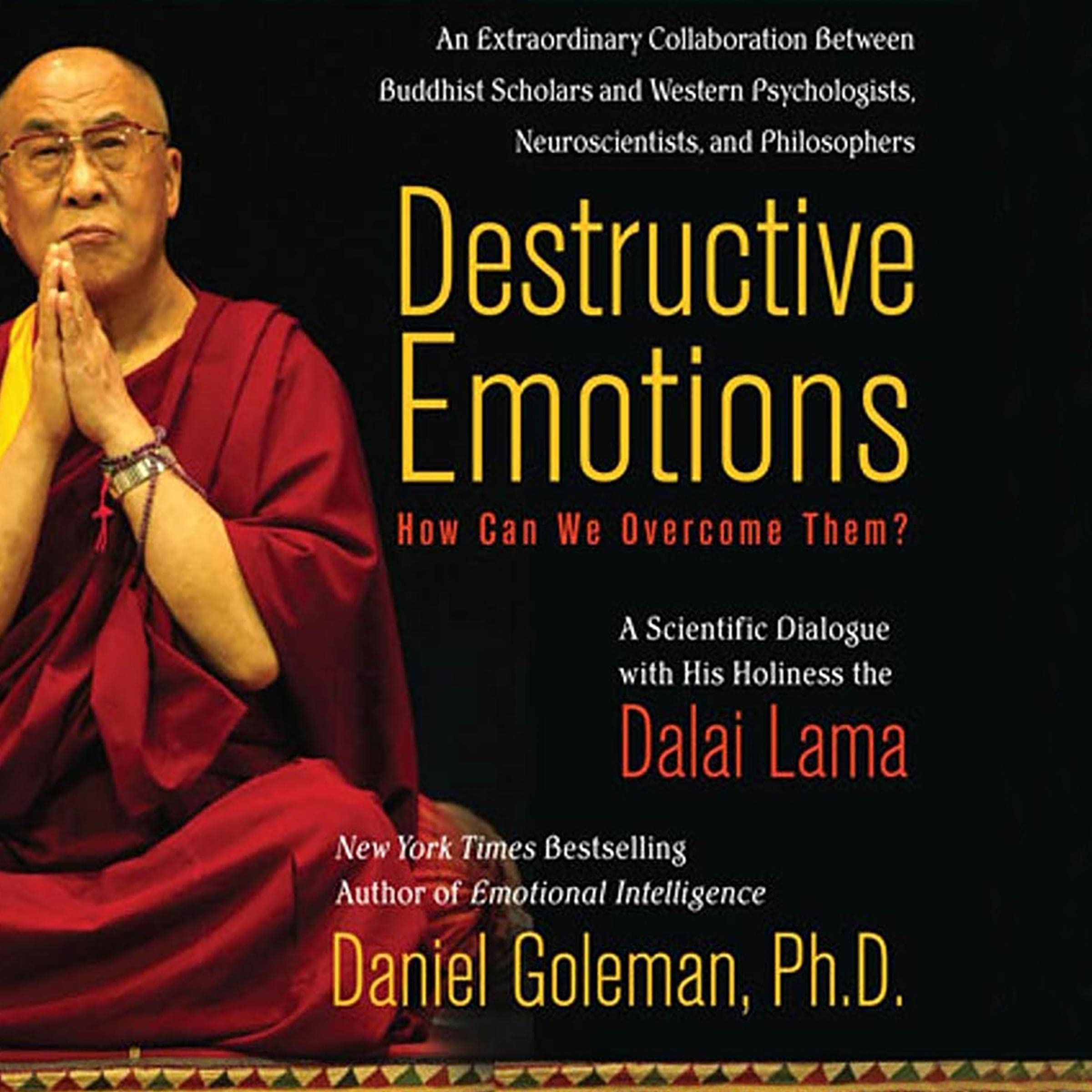

Destructive Emotions: A Scientific Dialogue with the Dalai Lama
W**H
Recommended Read
In this book Daniel Goleman, author of Emotional Intelligence books, chronicles Dalai Lama's latest efforts to promote an ongoing conversation between Western scientists and practitioners of meditation and Buddhism. It includes a number of interesting chapters that outline the methods and results Western scientists have been able to produce by studying the state of the mind of highly trained meditators. It also explores negative emotions, ways to understand them, and ways to avoid them. Personally, I found the book very thought provoking and absorbing. You will definitely question your own emotional states, moods, and personality. If you have never read anything about the Dalai Lama or practiced meditation, it's impact may be lessened.
T**E
A book describing the conference starting the scientific portion of the Mindfulness movement
"Destructive Emotions" is an account of one of the earliest meetings of the Mind and Life Symposium. These events started as a way for the Dalai Lama to learn how western science can be compared, contrasted, and perhaps integrated - as he has said repeatedly, "If science proves Buddhism wrong, then Buddhism must change."This particular meeting drove Richard Davidson's original imaging experiments examining the effects of meditation on the brain. By showing how meditation affected brain structure and activity, the scientific arguments for meditation were made. The description of the experiments and their implications is a major feature of this book, and is worth a read for anyone interested in the origins of the mindfulness movement.For a document covering both science and spirituality, it's surprisingly accessible. Daniel Goleman writes lucidly. You don't need to be a scientist or a Buddhist to enjoy reading this book.
P**N
Interesting, but doesn't have the same impact as another format might
In general, I liked this book and found it useful. I thing it contains a lot of good concepts, but because of the dialogue format it is difficult to get one's arms around all the concepts. There are also some holes that are left unaddressed, again probably because of the format.Given the above context, I think that there are many gems in this book and a lot of practical advice. Reading the dialogue between all these prominent people is thought provoking and challenges you to consider the underlying assumptions of your own emotional life.There is a lot of good advice in this book about handling destructive emotions, but the scope is actually wider than that. I found it to be more of an exploration of the nature of emotion and how to live with emotions in a balanced way.There are advantages and disadvantages to this approach to writing. There are a number of reviews that praise this book and others that shoot it down. I think the reality is somewhere in the middle.The people engaged in the dialogue are great choices, but somehow when the book went to print I think the written form missed capturing the full spirit of what went on at the actual event. I wasn't there, but I get a sense that in the transfer from speaking to writing some important meanings didn't come across.In spite of my feedback above, I wouldn't be discouraged from buying this book. It is unique and has a lot to say. My three star rating is merely an indication that I think the information could have been presented better and perhaps elaborated on in a way that brought the concepts more to life.
F**7
Who needs a therapist with a book like this? Well written
I fired my therapist after reading this. I highly recommend it. Dalai Lama rocks!
T**N
Buddhism explained in scientific terms
Years ago, thinking the Dalai Lama doesn't lead a normal life in the midst of a chaotic society, I did not study his teaching until I had a chance to read this book. Boy was I wrong! He understands human emotions at the deepest and most profound level that no man or psychologist has before. When translated and explained in lay men's terms, I can now hope that Buddhism will bring tremendous relief to the stressed out working population of the US. We allow our negative emotions too much control.This book will lead most of us out of our dark cell into a happier place.
E**H
Content/Information is solid and fascinating- but the first 60 or ...
Content/Information is solid and fascinating- but the first 60 or so pages were hard to get through (as in not so interesting.)
C**R
Especially useful for scholars of complex PTSD, 'Borderline Personality Disorder (BPD) and DBT
A excellent if informal presentation of intriguing occidental neuropsychologicsl research at many times through the lens of Buddhist Psychology. Those familiar with DBT will find its basis on page 134 of the trade paper edition. Must reading for anyone treating trauma survivors with complexPTSD and very good in tandem with Judith Herman's TRAUMA ANDRECOVERY.
J**O
This book introduce me to the meditation. The most wonderful tool I have ever had
This is the evidence that shows why we are suffering so much and it provides a wonderful way of handling our emotions. It describes a series of talks between western scientists and the dalai lama with other buddhist masters, where they all discuss about destructive emotions. The buddhist perspective on this topic is very interesting and I am sure we all can benefit from it.
Trustpilot
2 weeks ago
1 month ago